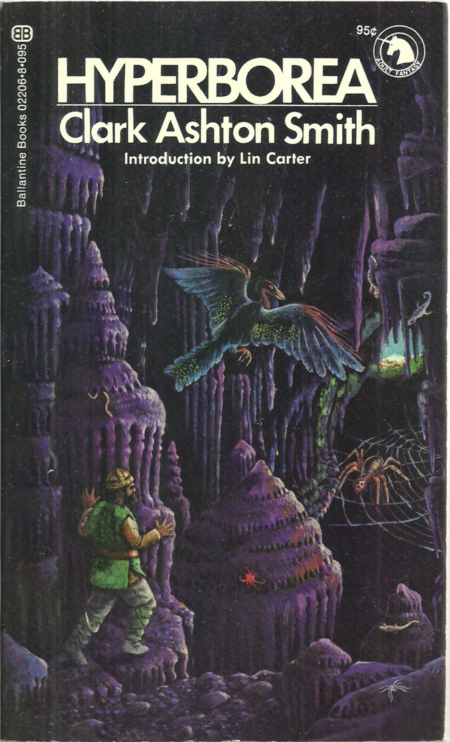We all know about Atlantis and Avalon, those mythical lands where elden (and future) kings lie. As a child I was fascinated by both (particular Avalon) and used to wonder where they were. But they’re far from the only mythical lands, and while the others that have been documented through history may not be as well known, they are equally exotic and mysterious. Here’s a few of them…

Lemuria was proposed as a ‘lost continent’ in a paper written by a zoologist in 1864. It was suggested to have been a (now sunken) land bridge, and was used as an explanation for why similar animals were found in geologically separated continents. Within 30 years the idea had been appropriated by occultists who claimed that it was the true source of humanity, and their ideas became even more crackpot to the point where some claimed Lemuria still existed in locations as diverse as inside the Earth (a common belief for lost lands) or underneath the USA. The history of Lemurian writing is interesting in and of itself, with some examples being claims that Lemuria may now be Australia (or perhaps Westralia), or that the capital of the land was called Telos (class Who fans take note) and was somehow linked with another planet.
As a mythological land, Lemuria is richly used in pulp sword and sorcery as well, with notable additions to the myth being added by John Jakes (the Brak writings) and Lin Carter (Thongor). Indeed it may be the case that Lemuria is the most popular ‘lost continent’ in fantasy literature, perhaps because it’s less developed that Atlantis in most readers minds.

The idea of a North Polar civilization goes all the way back to the ancient Greeks, who dubbed men from this mythical land Hyperboreans. The name of the land – Hyperborea – dates to 450 BC, and probably referred to the most northern parts of Europe. Legends compiled by Greek scholars referred Hyperborea as a civilized paradise, with men taller and stronger than other men, unusually healthy and living to a thousand years or more. Some specific descriptions of the inhabitants described them as white with blond hair, which would in time be latched on to by the Nazis (as well as another mythical northern Greek land, Thule) as an inspiration for the Aryan ideal. During the mid 20th century the occultists (probably trying to wash their hands of Nazi links) invented fanciful tales of hyperevolved (or in some cases, devolved) humans once living in Hyperborea, but as with all of the trash uttered by Blavatsky and her ilk, this was no doubt nonsense crafted to solicit donations from fools.
In modern literature Hyperborea was famously used in Robert E Howard’s Conan books and the countless pastiche’s that followed, where it was assumed to be exactly what was suggested in Greek myth. It’s also the namesake for a tabletop RPG, and (probably due to the Conan link) often included in the worlds of other games.

Mu – and this is a familiar origin by now – was suggested (in the mid 1800s) to have been a lost continent in the Pacific, that has long since sunk and become lost to time. Obvious connections to Atlantis and Lemuria were suggested (the Victorians loved their lost continent myths!) but Mu developed it’s own identity when professional prevaricator James Churchward made a career out of writing books about the place, which included a wealth of alleged evidence that roped in everything from ancient Indian fables to the Bible. These books were extremely popular, and for a time Mu was ‘bigger’ than Atlantis in the public psyche. I think those days, much like Mu itself, are behind us now. Had you heard of Mu before this entry?
H.P. Lovecraft mentioned Mu in many of his tales, and indeed the sunken cities inhabited by creatures of his Mythos are reminiscent more of Mu than Atlantis. Unsurprisingly, many of those followed in his footsteps and added stories to his mythos have also mentioned the mythical continent.

Ys was a mythic utopian city in northwest France (Brittany) that was said to have been built (over 2000 years ago) at the very edge of the land and surrounded by a great wall to protect it from the sea. Due to misadventure and deception, the wall was breached and the city was submerged, never to be seen again. The tale is romantic and fantastical, and various interpretations include powerful magic (a sorceress and even the Devil) and monsters (mermaids and sea dragons). Much like Avalon, it has been suggested that Ys is not gone for good, and evocatively ‘when Paris falls, Ys will rise again’. While Ys was been often described in books and art and even an opera during the 19th century, it seems to now faded from historical romanticism.
As a city and not a land, Ys doesn’t play any notable role in pulp literature, but the name was appropriated for a long-running series of Japanese role-playing video games (which are almost all very good). While they mostly have nothing at all to do with the actual myth, it’s worth noting that the cover of the first game is a literal interpretation, showing a city being swallowed by the sea.